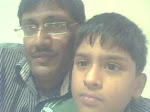Many many years ago, a few thousand to be precise, in a beautiful hermitage in the middle of the forest, lived a learned Guru. We will leave speculation about his name and the exact time to the historians, and focus instead on the knowledge he gave us. Among his many talented disciples, perhaps the most talented was his own son, though the Guru showed him no special favour.
One day, the boy approached his master with due respect, and, when granted permission to ask a question, reverentially asked, “What is God?”
The Guru replied, “Food is God,” and was silent. The boy correctly surmised this to mean that he must study not only food but all things corporeal in the environment, and to understand the true nature of matter. Long years passed as his observation deepened, and at last he concluded that there was more to God than matter.
Once more he approached his father and asked, “What is God?” This time the sage replied, “Prana (the life force) is God (Brahman).” The boy plunged this time into an intense study of prana, mastering the techniques of controlling the life force energy through pranayama and related disciplines. But some years later, there came a day when he went to his father once again and reverently repeated his query, “What is Brahman?”
“Mind is God,” intoned the Guru, and sank once again into the depths of his meditative bliss. Living up to his talent, the disciple wasted not a moment but plunged into a deepening experience of mind and consciousness through meditation. Stilling the modulations of the mind, he prepared himself once more to receive the best that the master had to offer. “Intelligence is God,” was the next message he received from the Guru a few years further on. By this time he was able to plumb the depths of intuitive perception and unravel the mysteries of self-knowledge which have formed the basis of Indian spiritual thought for centuries.
But there was still another step to take; and once more he asked his father, this time with the confidence of the true seeker, “What is God?”
With a satisfied smile and infinite love, the master replied with an air of finality, “Bliss is God!” When the ripened seeker delved into the experience of bliss, he dissolved in it totally – the ecstasy of Divine realization became his very being, and thus he was enlightened.
This episode underlines the basic premise of Hinduism, the realization of the Self and of the unity of all of creation through a combination of knowledge, discipline, intuition, experience and devotion. Of these, much has been discussed about knowledge, discipline and even devotion for that matter, but the key lies perhaps in the remaining two factors – experience and intuition. In our culture, a student has always been encouraged to trust his own experience and sharpen his intuitive perception. This path is the path of experience, of subtlety and of beauty; it is not the realm of dry theorization and rhetoric. In fact, through the ages, the self-realized souls have sung out in bliss and danced in ecstasy; they have showered love on all around them. In addition, they have also shown a keenness of perception and sharpness of logic that would put the greatest intellect to shame. The icing on this cake has been their focus on social reconstruction and rural development; from Chaitanya Mahaprabhu to Sri Ramakrishna, Vivekananda to Aurobindo, the sages have expressed selfless service and love with equal passion and commitment, and sought to mould not just a nation but a generation of young minds through their message.
The gurus sought to inspire their disciples by giving them not just ideals but a genuine experience of their true nature. They also became role models for the youth; role models who would never shatter or get mired in controversy. These beacons of humanity shine bright as ever today, and hold out a ray of hope for a generation that is constantly starved of yet craving for idols and ideals.
Saturday, October 30, 2010
Subscribe to:
Post Comments (Atom)


No comments:
Post a Comment